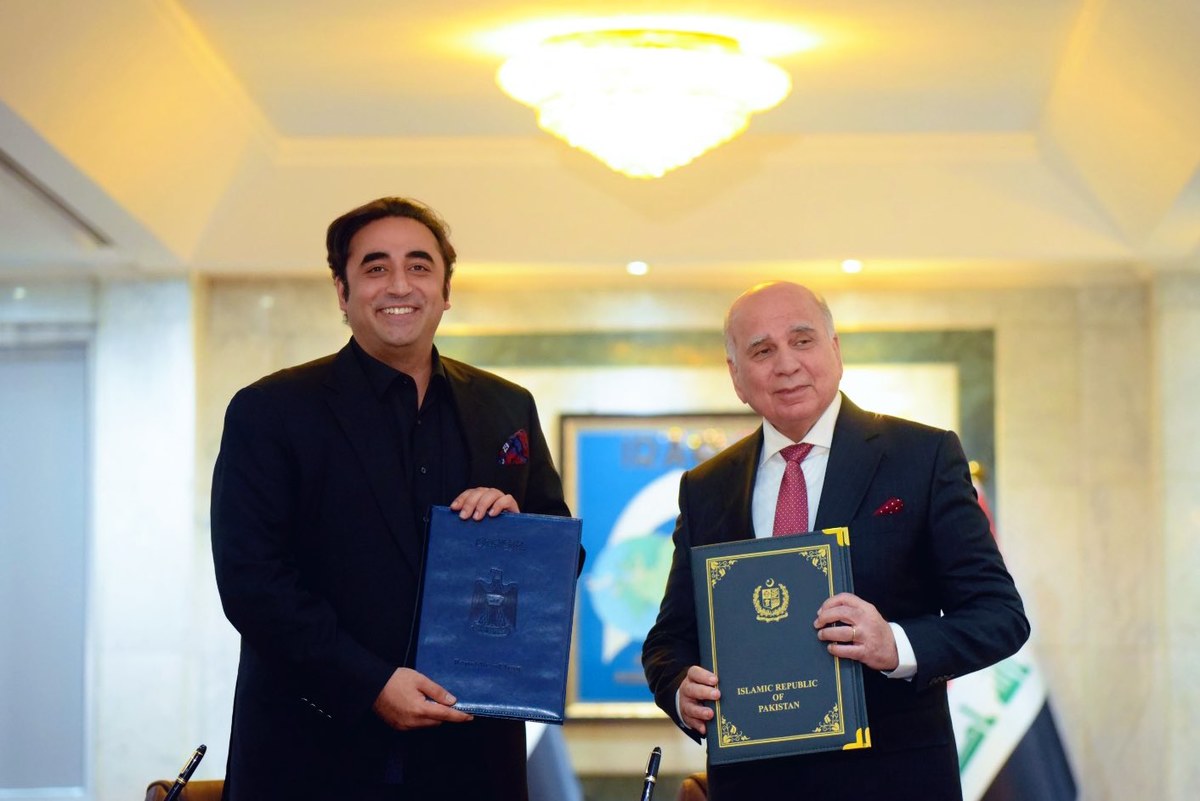ISLAMABAD: Pakistan’s Foreign Minister Bilawal Bhutto-Zardari, who is on a three-day visit to Iraq, has stressed the need to enhance cooperation between the two countries, Pakistani state media reported on Tuesday.
The foreign minister attended Pakistan-Iraq Business Forum in Baghdad and a ceremony for the signing of a memorandum of understanding (MoU) between the Pakistani and Iraqi federations of chambers of commerce and industry.
“There is immense potential to increase trade and economic cooperation between Pakistan and Iraq,” the state-run Radio Pakistan broadcaster reported.
“Both the countries need to transform the fraternal relationship into a partnership.”

Pakistan's Foreign Minister Bilawal Bhutto-Zardari addresses Pakistan-Iraq Business Forum in Baghdad, Iraq, on June 6, 2023. (Foreign Office of Pakistan)
Pakistan would cooperate with Iraq in all fields, especially with business communities, to benefit from trade and investment opportunities, he assured.
The two sides signed a memorandum of understanding on this occasion.
“The MoU will facilitate linkages between business community of both countries,” the Pakistani foreign office said.
Bhutto-Zardari arrived in Baghdad on a three-day visit Monday morning. During the visit, the foreign minister has held meetings with the Iraqi leadership and will lay the foundation stone of Pakistan’s own embassy building in Iraq, according to the Pakistani foreign office.
On Monday, Pakistan and Iraq signed agreements to enhance cultural cooperation and abolish visas on diplomatic passports of both countries.

Iraqi Foreign Minister Fouad Hussein, right, and his Pakistani counterpart Bilawal Bhutto Zardari pose for a picture in Baghdad, Iraq, on June 6, 2023. (@BBhuttoZardari/Twitter)
Relations between Pakistan and Iraq have received a boost with a number of ministerial-level exchanges in recent years.
In August last year, Iraq’s Foreign Minister Dr. Fuad Hussein visited Islamabad to discuss ways to strengthen bilateral relations.












